10 Worst Eating Habits for Women, Say Experts
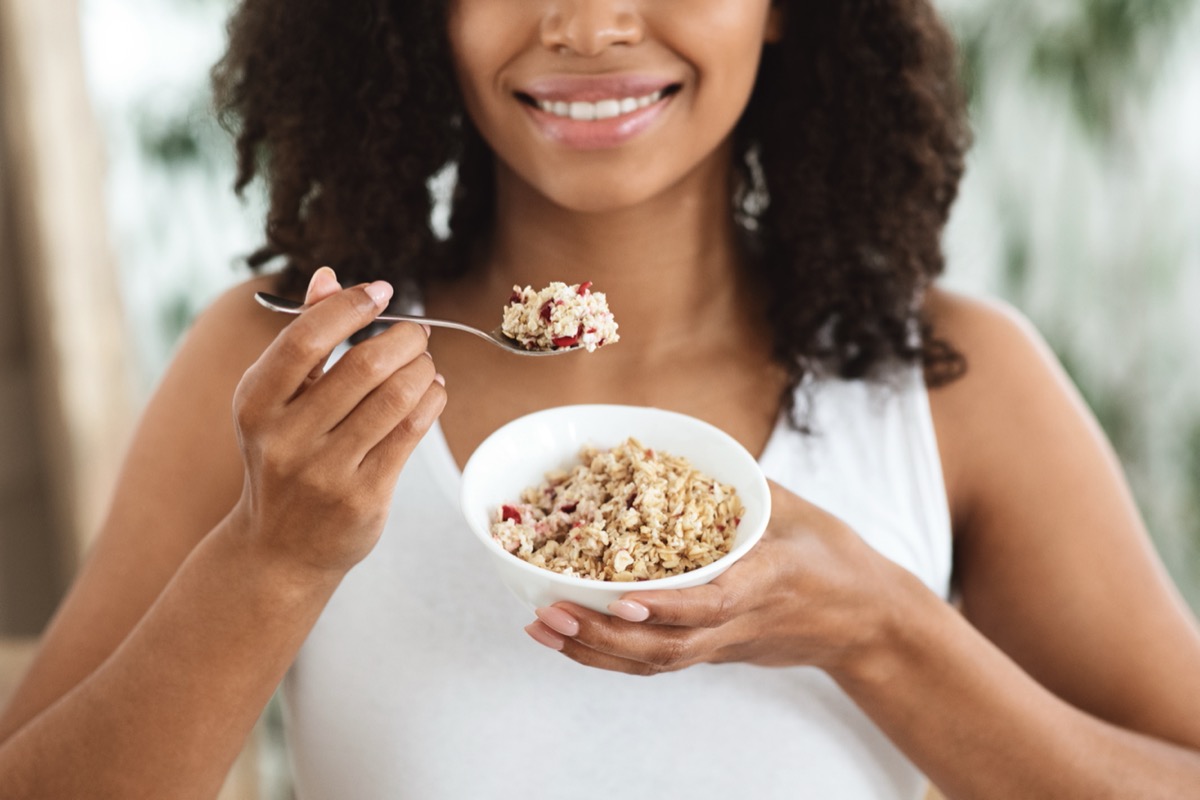
It's not just about what you put on your plate—yes, your eating style and habits can affect your health, too. And women, in particular, have certain eating habits that while common, are not necessarily the healthiest.
From failing to sit down for a real meal, overeating during meals, or skimping on specific nutrients your body bodies might need for menstruation, bone density, and even fertility, there are plenty of things you might not even realize are causing you harm.
But have no fear—you can surely correct those habits and start getting the fuel you need. It's all about learning how to stay satiated in the day without any excessive cravings. So, here are the worst habits for women you should stop doing right now, and what to do instead. And while you're making changes, be sure to try out the 21 Best Healthy Cooking Hacks of All Time!
Eating While Standing

Busy moms might stand and nosh over a counter while attending to kids, but grabbing a chair before digging into your lunch or snack can actually be beneficial.
"When you eat quickly without paying attention, your body doesn't give you mental credit for eating," says Lauren Harris-Pincus, MS, RDN, and author of The Protein-Packed Breakfast Club. Stick to dining in a chair with a plate and fork (or spoon) and be mindful about your meal with chewing and take pauses throughout, she suggests.
Nibbling on Kids' Leftovers
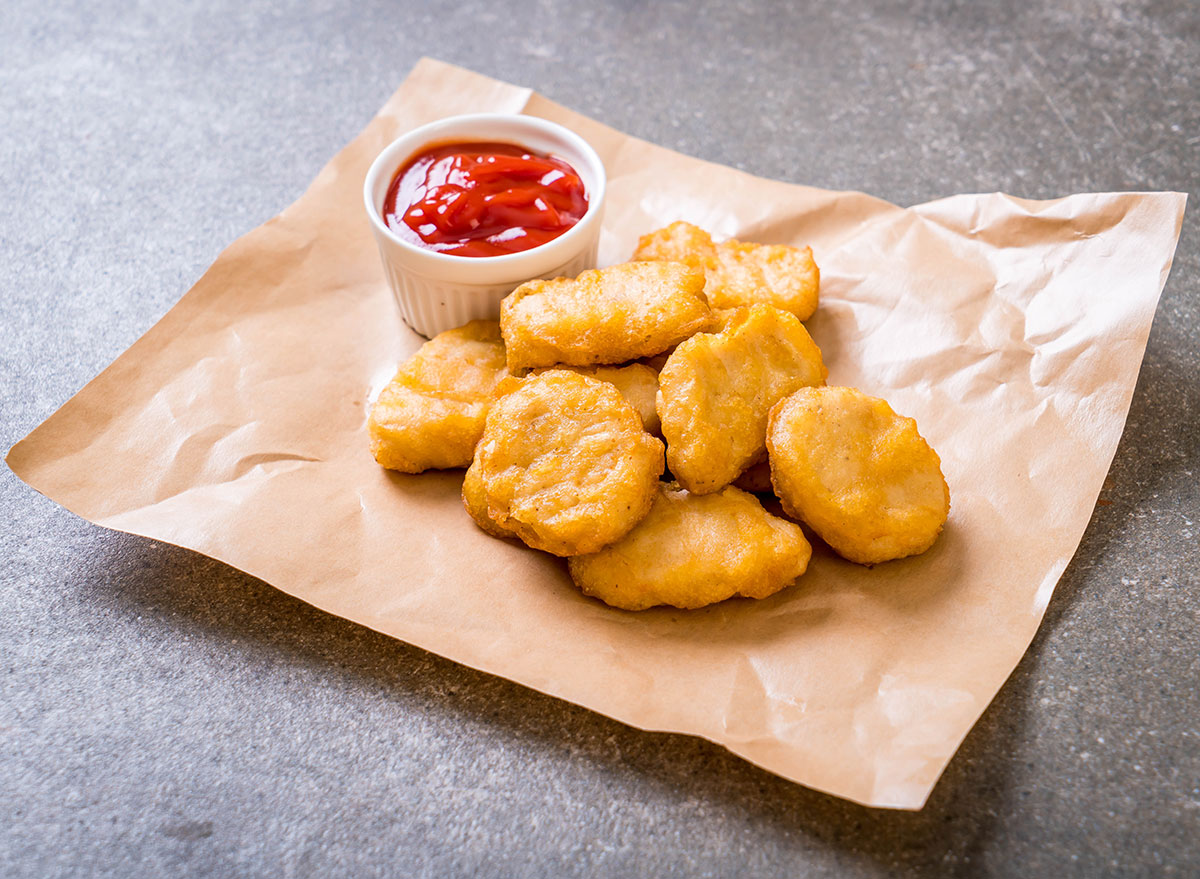
Yes, the calories in your kids' leftover nuggets and mac and cheese do count.
"I know wasting food is frowned upon but if that food won't improve your health, let it go," says Harris-Pincus. Those little kid-friendly snacks add up to your daily calorie count.
Eating Without a Plan
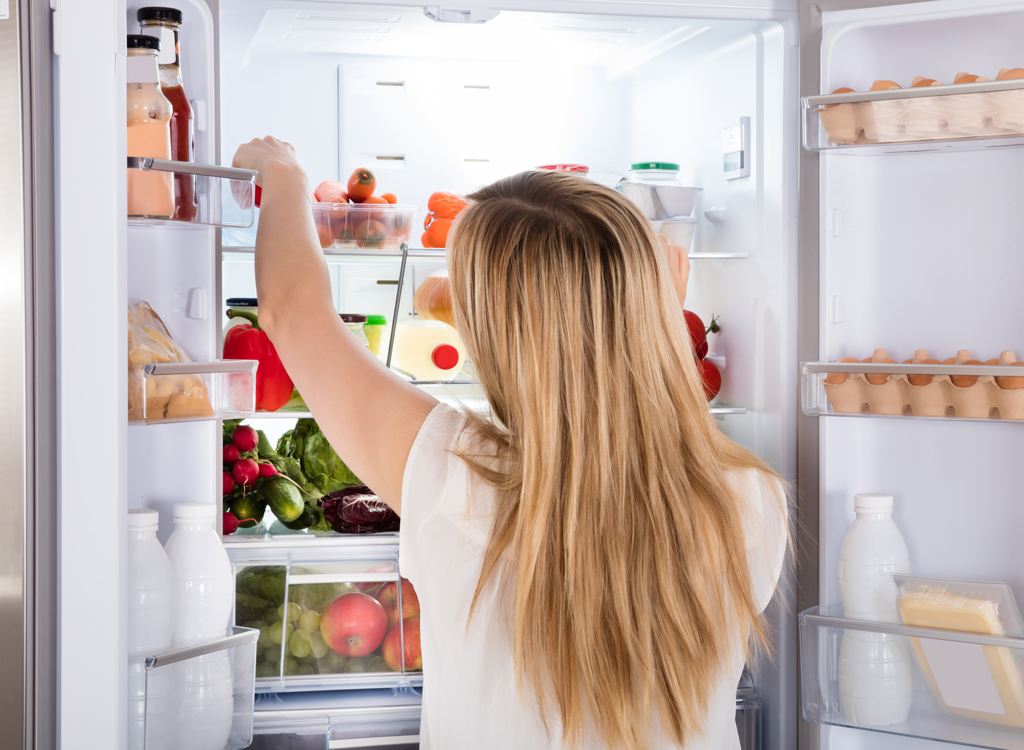
You know the feeling all too well—you hit the wall late afternoon and open the pantry or fridge for something to hold you over until dinner. That's just a recipe for disaster.
"Reach and grab food in boxes and bags generally will provide a lot of calories without quality nutrition," Harris-Pincus says. "We all could use more fruits and veggies in our diet so have a few go-to snacks prepared like cut up veggies to dip in hummus or guacamole, Greek yogurt cups or a bowl of washed fruit."
Eating What You Think Is Allowed Instead of What You Crave

"So often the diet mentality leads us to choose meals based on what we are 'allowed' vs what our bodies need. If you do this, you may eat more by overriding your hunger cues," says Harris-Pincus. Listen to your body, pause during your meal, and ask yourself if you are still hungry before continuing to eat.
Labeling Foods as Good or Bad

All foods can fit in a healthy diet as long as you don't have allergies or a specific medical condition. Plain and simple.
"Labeling foods as bad can cause guilt and negative self talk that will ultimately lead to a less than ideal relationship with food," says Harris-Pincus. Instead, be sure to choose foods that are nutrient rich most of the time and thoroughly enjoy those treats when you do decide to have them.
Looking for more tips? Sign up for our newsletter to get daily recipes and food news in your inbox!
Using Meal Replacements Too Often

"While they may be marketed to replace a full meal, these replacement shakes or bars are too low in calories and nutrients to keep you physically and mentally satisfied, and are better used as snacks," says Kelly Jones, MS, RD, CSSD, LDN.
You're not only stressing yourself out and increasing the chance of getting too hungry and overeating later, but also displacing real foods that provide a variety of vitamins, minerals and phytonutrients to support your health and metabolism.
Skimping on Protein at Breakfast
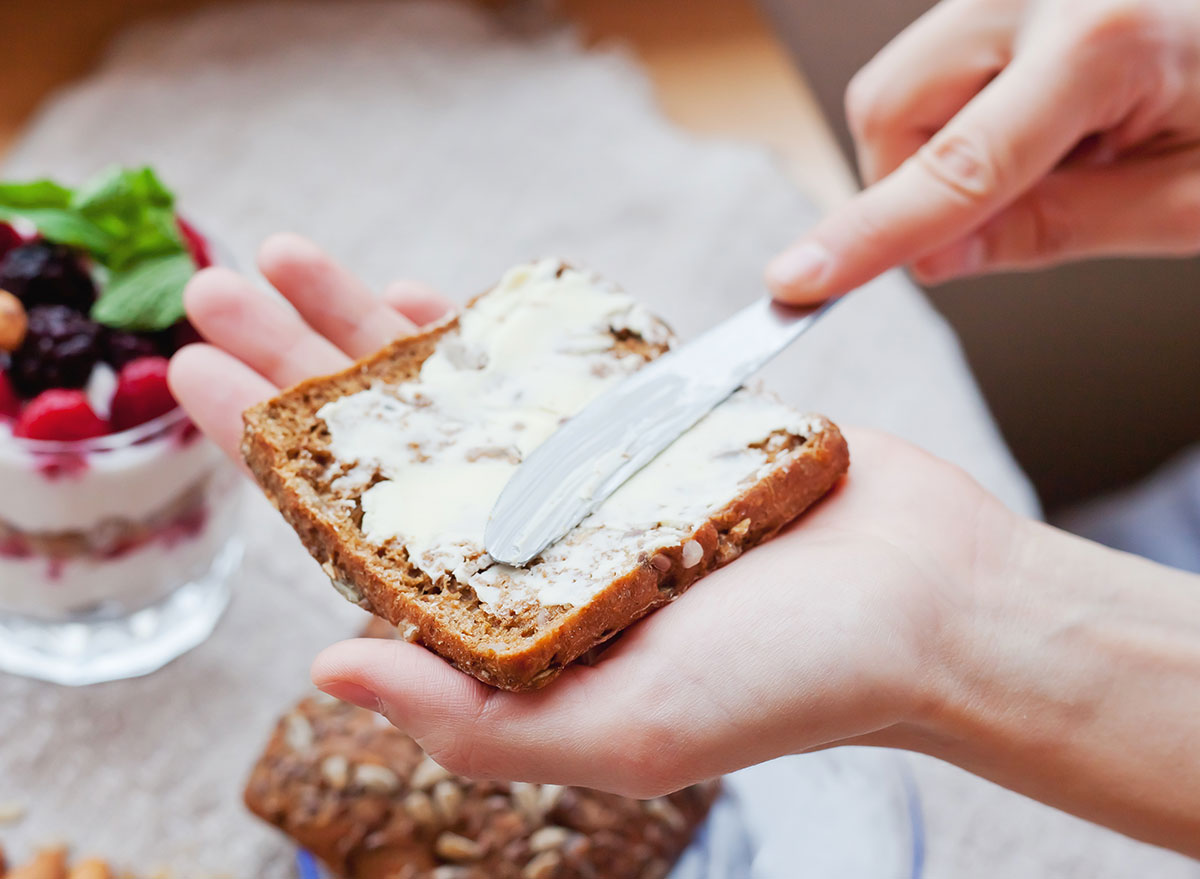
"It's critical for women to maintain lean muscle as we age (it can start to decline by age 30!), and going from dinner to lunch the next day without enough of it can mean loss of muscle and its strength," says Jones. The best way to do that is to add some protein to the mix. So what's the best way to pack on the protein in the morning? You can easily add more with a glass of milk in the morning, enjoying some protein rich yogurt, or topping your overnight oatmeal with nuts and seeds. Choosing whole grains helps add a few grams, too.
Eating Too Much at Night
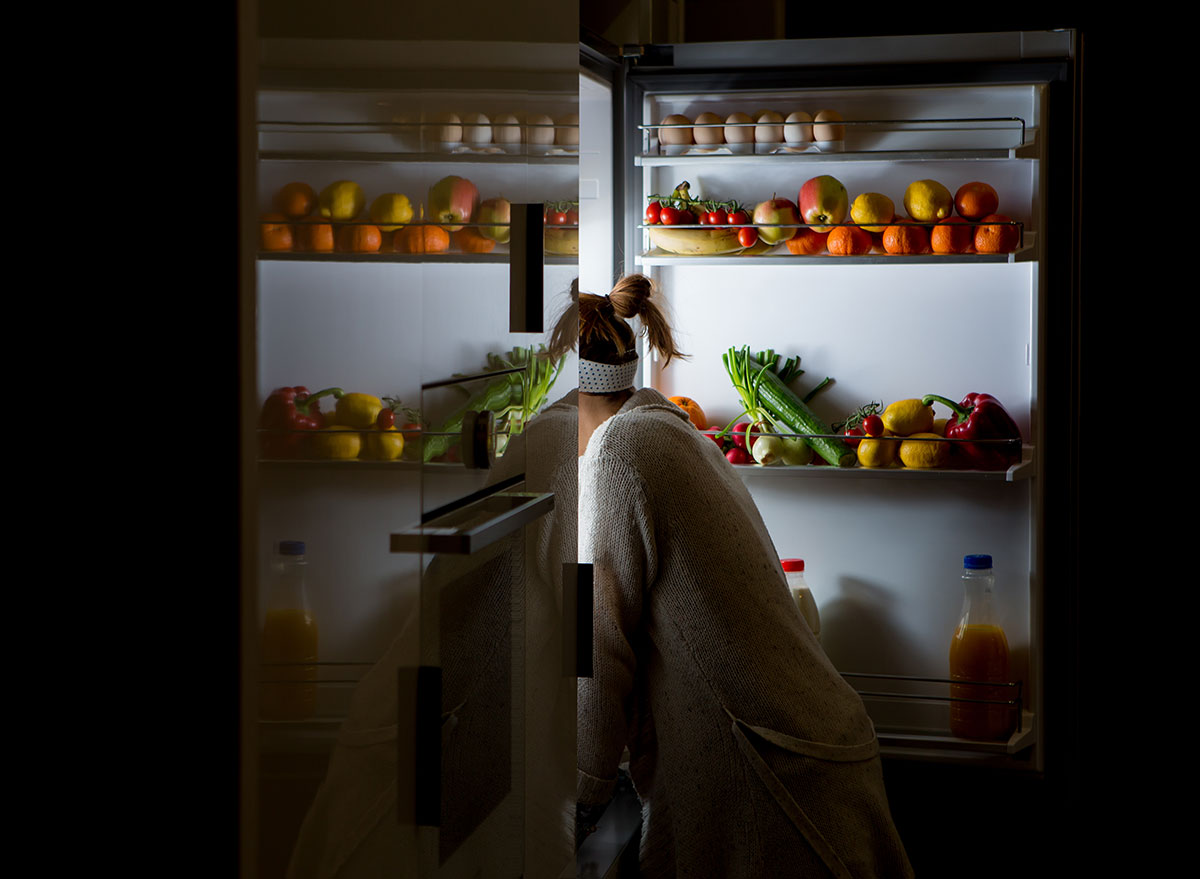
Many people wake up with a mentality that they'll eat less in the morning to make up for feeling like they overate the night before, but this tends to result in a binge-restrict cycle.
"Your body gets used to you skimping earlier in the day and then feels a compulsion to make up for it later in the day, which can make you feel out of control when eating and even increase stress before bed, disrupting sleep," says Jones. Break the pattern by eating a full breakfast and nosh in the day to make for a smaller pre-bedtime meal.
Going Low-Carb Long-Term

"Low-calorie diets can be more harmful to women than men since they disrupt hormones. In the long run, consistent low energy intake can lead to irregular periods and infertility, which are also signs that your body is experiencing bone loss," says Jones. It might work for short-term (like keto), but don't go low-carb for the long run unless you get an OK from your doc.
Snacking Instead of Eating Full Meals
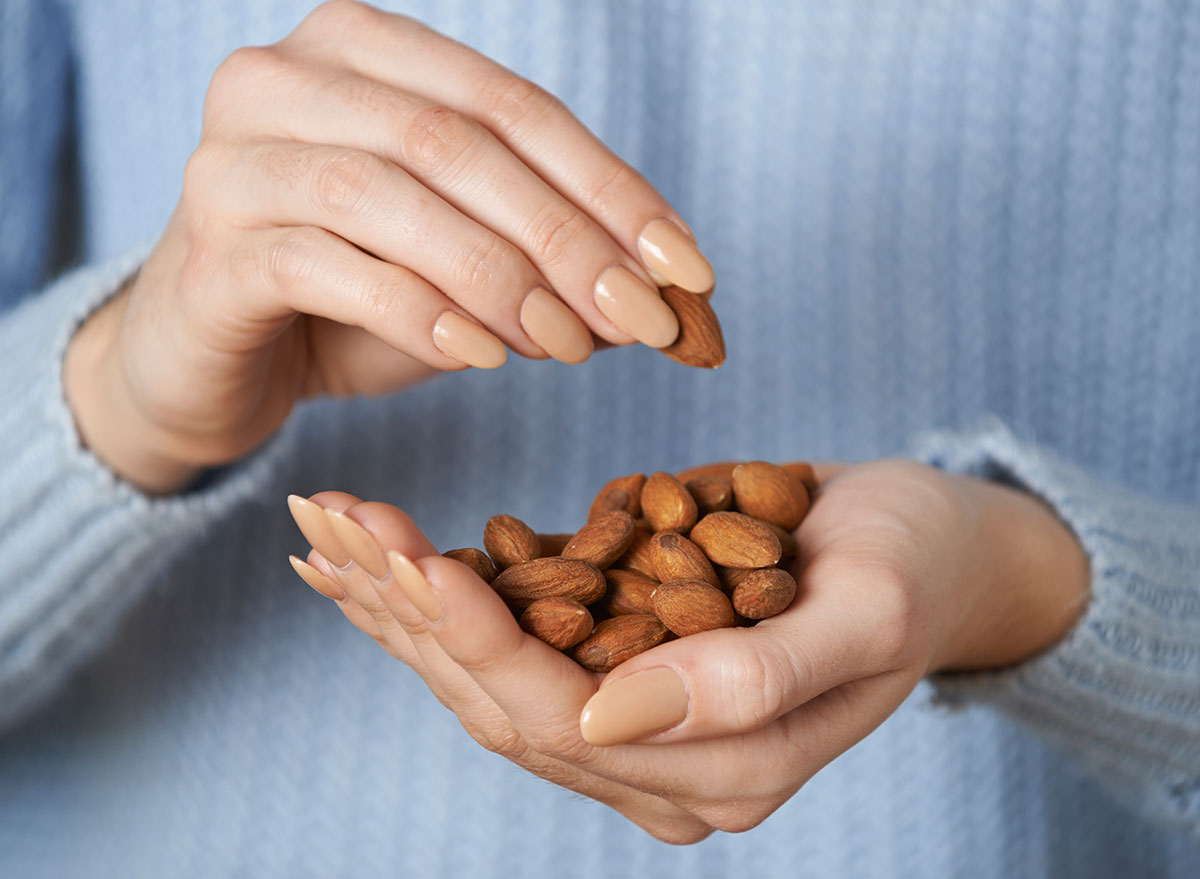
Sometimes, the thought of sitting down for a full meal just doesn't sound ideal to you. But just going through the day munching on snacks isn't the move.
"You may snack versus having a meal because you enjoy snack food more, because it's what's convenient during your busy day, or because you've incorrectly heard that grazing boosts metabolism," says Jones. Either way, this causes your body to spend too much time releasing hormones that regulate blood sugar and excess stress. And you'll never be full for long enough to stop thinking about food! So, eat real meals to keep your body satiated and cravings at bay.








